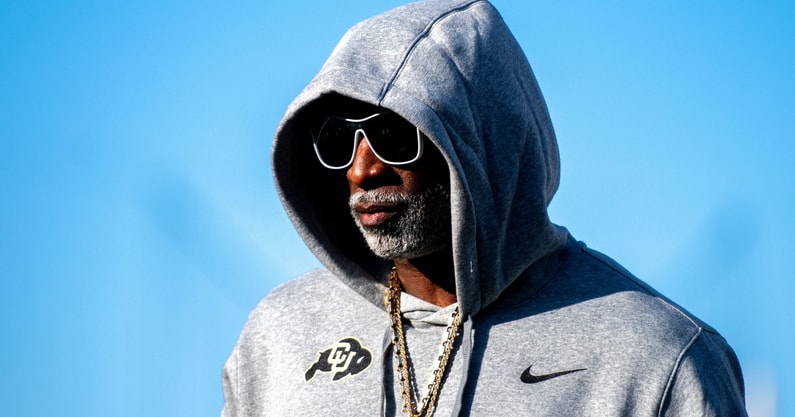
Paul Finebaum, one of college football’s most recognizable voices, didn’t hold back in responding to recent comments made by Colorado head coach Deion Sanders regarding the need for a salary cap in college football. Sanders, who has been outspoken about the growing financial disparities across programs and the evolving landscape of NIL (Name, Image, and Likeness) compensation, suggested that the sport might need a cap to restore some form of balance and sustainability. His comments sparked widespread reaction across the sports world, but perhaps none more direct than Finebaum’s.
During a recent segment on ESPN, Finebaum responded sharply to Sanders’ remarks, stating bluntly, “Deion should stick to coaching and let others handle the economics of the sport.” The long-time SEC Network analyst argued that while Sanders has brought significant attention to the Colorado program and injected a new energy into college football, he’s overstepping his role by calling for structural financial changes to the NCAA system.
“He’s not wrong that college football is changing fast,” Finebaum added, “but this isn’t the NFL. You can’t just plug in a salary cap and expect it to fix everything. Deion’s a great promoter, a strong voice—but he’s not the commissioner of college football.”
Sanders, who has attracted national headlines both for his brash style and his transformative recruiting at Colorado, made his comments amid rising concerns about the uneven playing field created by NIL deals. Top programs with deep donor pools have been able to offer significant incentives to athletes, creating a growing gap between powerhouse schools and others struggling to compete. Sanders argued that a cap could help level the playing field and preserve competitive integrity.
“We’ve got kids making more than their coaches now,” Sanders said earlier in the week. “We’ve got to bring some order to this. A salary cap in some form is necessary if we’re going to keep this thing from getting out of hand.”
Finebaum’s rebuttal was not entirely dismissive of the concerns. He acknowledged that the NIL and transfer portal era has created chaos in some corners of college football, but he insisted that Sanders’ proposal is too simplistic for such a complex issue. “What Deion’s saying sounds nice in theory, but he’s not offering a realistic solution. These are legal contracts, there are antitrust laws involved, and we’re dealing with college athletes, not professional employees under a union.”
Some have accused Finebaum of being overly critical of Sanders, pointing to a pattern of skepticism toward the Colorado coach’s unconventional methods and media presence. Sanders, never one to shy away from a media clash, has yet to directly respond to Finebaum’s comments, but his staff and supporters have made it clear they stand behind his vision for reforming the sport.
As NIL collectives continue to redefine the recruiting landscape and conferences fight over realignment, the question of regulation—whether through a cap, guidelines, or federal oversight—will remain central to college football’s future. Whether Sanders’ idea is feasible or not, it has once again elevated the national conversation, and drawn reaction from the sport’s most influential voices. Finebaum’s sharp response is just the latest reminder that in today’s college football world, the debate off the field is just as fiery as the competition on it.






